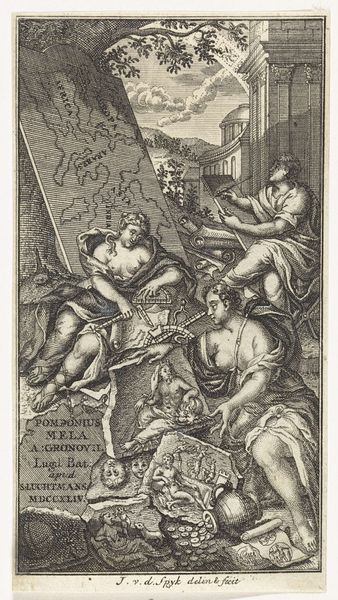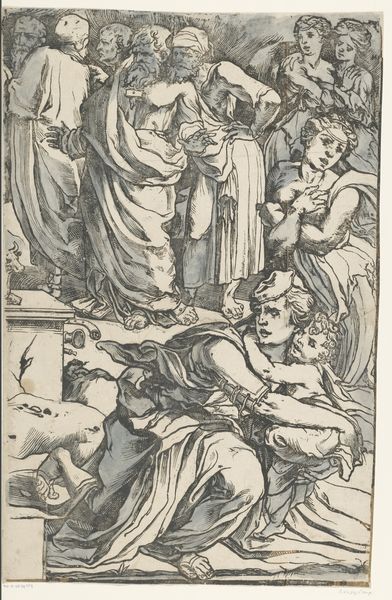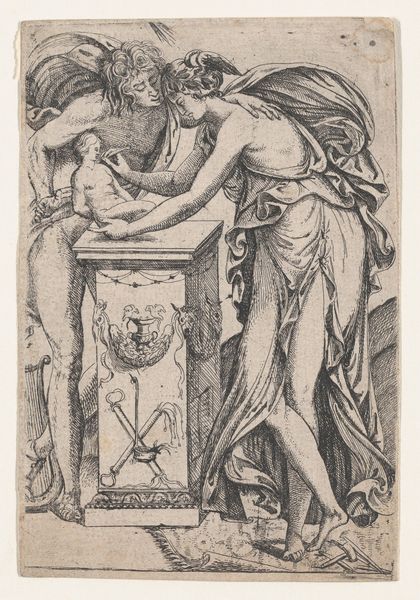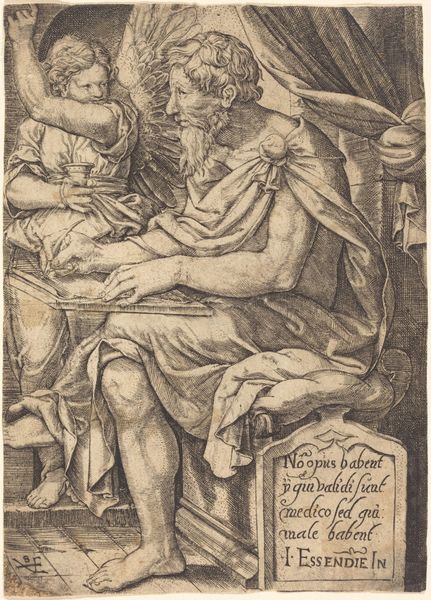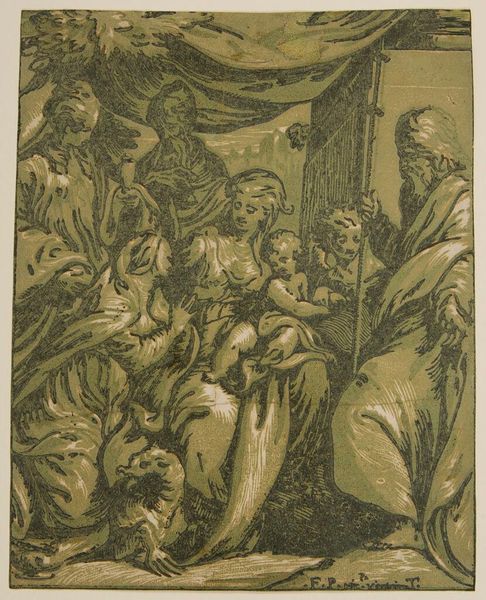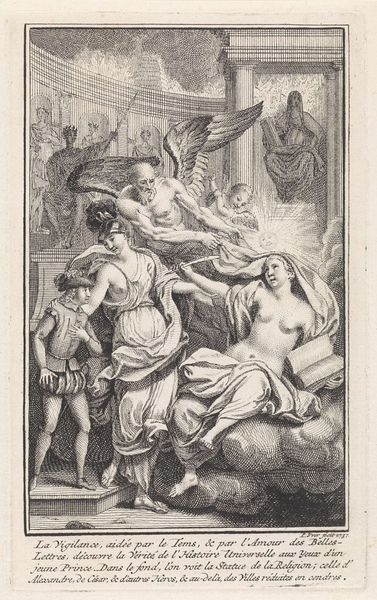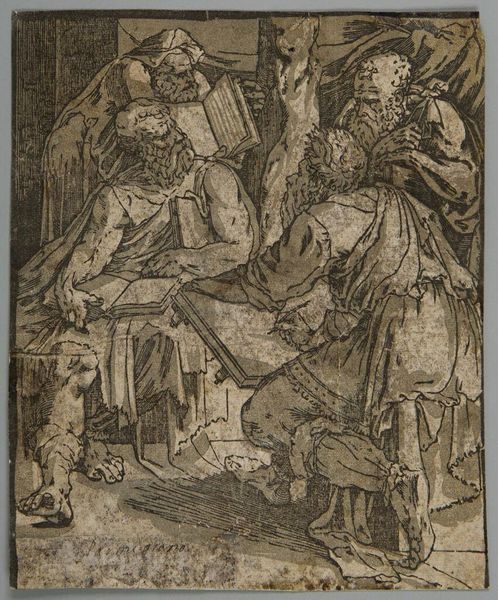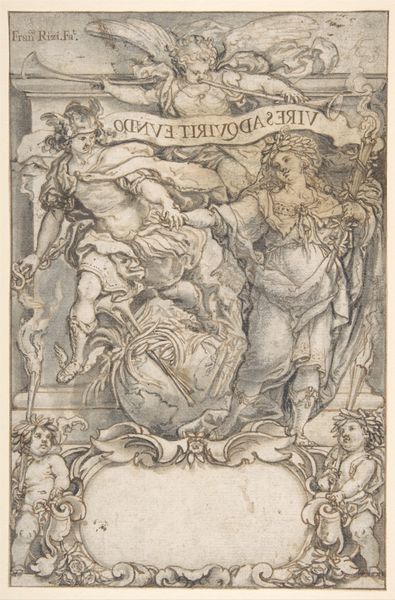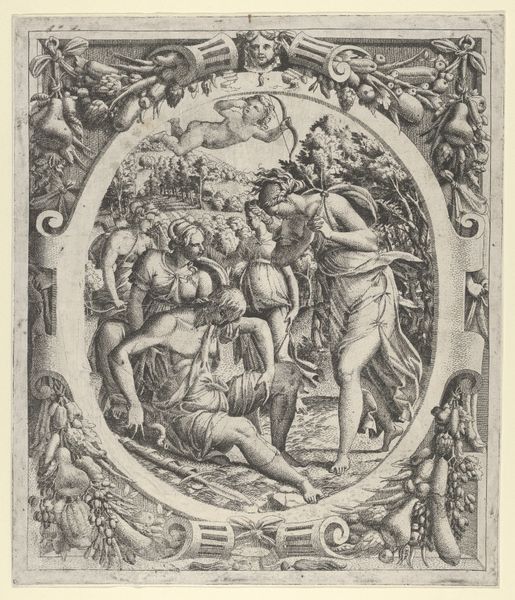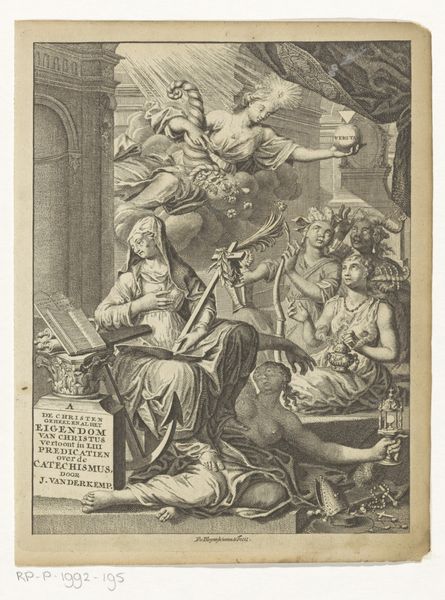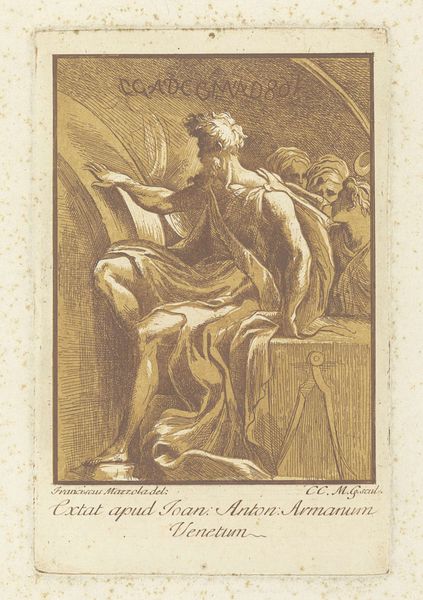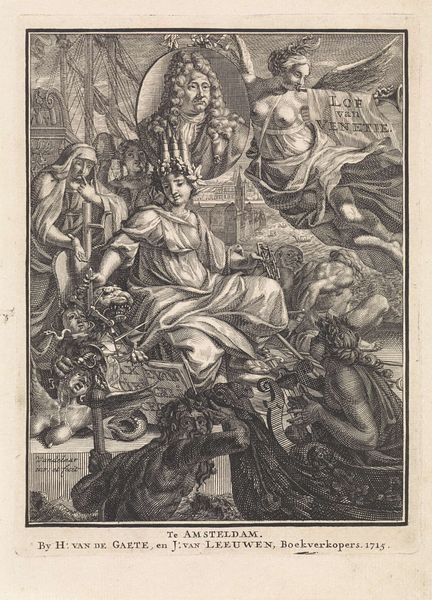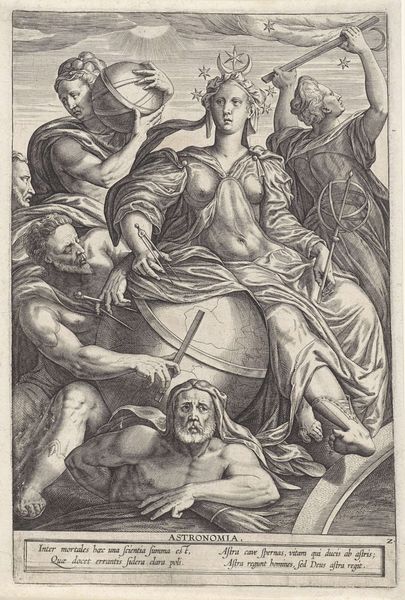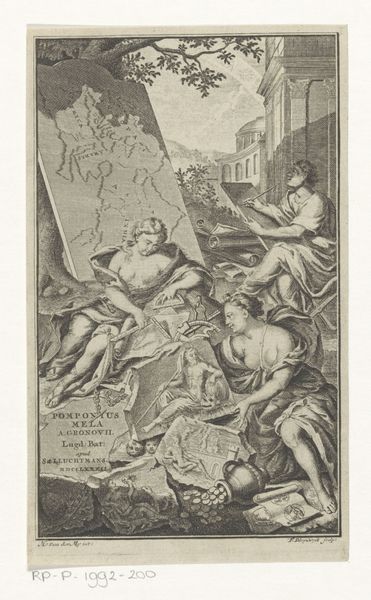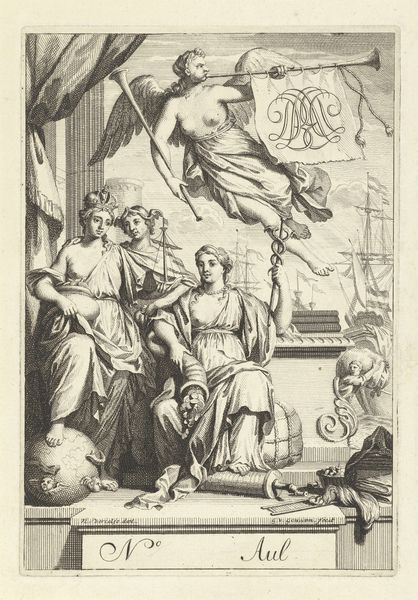
drawing, paper, pencil, charcoal
#
portrait
#
drawing
#
toned paper
#
narrative-art
#
paper
#
charcoal art
#
pencil
#
portrait drawing
#
watercolour illustration
#
charcoal
#
academic-art
#
portrait art
#
pencil art
#
watercolor
Copyright: Public Domain: Artvee
Elihu Vedder made "The Daughter of the Vine" using opaque watercolor over graphite on paper. Vedder, working in the late 19th and early 20th centuries, straddled the art worlds of both America and Europe, and was deeply influenced by symbolism and orientalism. This piece visualizes a verse from Edward FitzGerald's translation of "The Rubaiyat of Omar Khayyam." The composition presents a patriarchal figure gesturing over two women, with the verse suggesting themes of choice and liberation from traditional constraints. The depiction of the "Daughter of the Vine," who is likely referring to wine or intoxication, raises complex issues about the representation of women and the exoticized "other" during this period. The imagery echoes a romanticized, yet problematic, view of Middle Eastern culture, filtered through a Western, male gaze. The artwork encourages us to reflect on the power dynamics inherent in artistic representation, and how these dynamics reflect broader societal attitudes toward gender, culture, and identity.
Comments
No comments
Be the first to comment and join the conversation on the ultimate creative platform.
